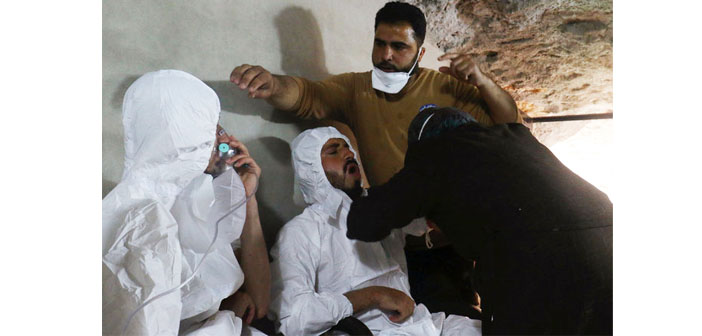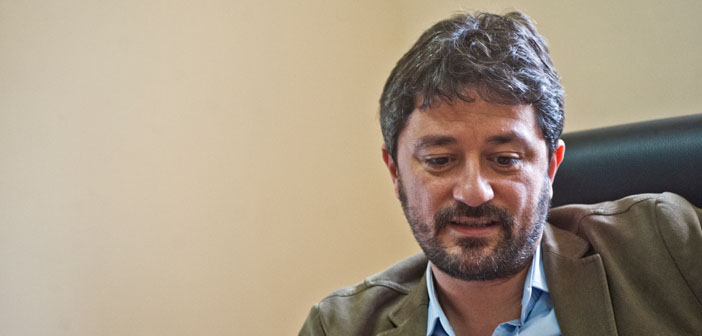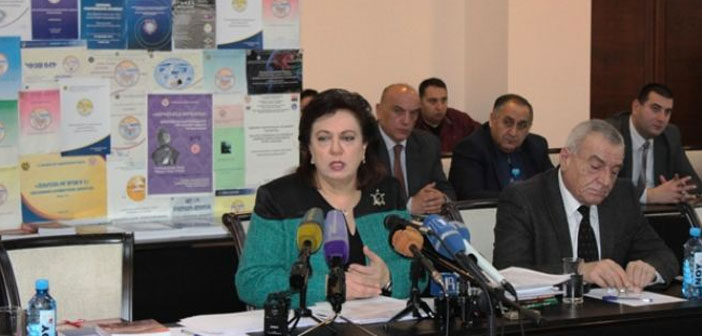Life is much harder for the refugees who are faced with the prejudices of the society. And when there is also an illness involved, it is not hard to imagine the extent of the challenges. The young man, whom we call Haig, left Syria because of the war and he is suffering from the aggravated victimization. He is a refugee and HIV positive.
It
is hard to listen to the story of Syrian Armenian Haig, who has been
living in Istanbul for almost 3 years. His resilience and strength is
unbelievable. Running away from the war in Syria, Haig is denied
treatment that HIV positive patients should have, since he has an
Armenia passport. He wants to apply to Europe as an asylum seeker. He
worked in Istanbul without insurance and he had to quit his job
because he is HIV positive. This resilient man, who is trapped by the
countries and prejudices, is in need of support for finding his way
out.
Working in Syria as an Arabic literature teacher for years, Haig starts to tell about his life: “I left Syria in 2013. You know, it was really hard to live there because of the war. There were also problems with the military service. It was dangerous for young people. They didn't do much to elders and women, but they were causing many troubles to the young ones. That is why I left Syria. My brother went to Libya before; he was working there. I went to Lebanon and then to Armenia from there. I applied for Armenia citizenship and got Armenia passport. My plan was to go to Libya with that passport and then head to Italy by sea and apply to Europe as an asylum seeker.
After I received my Armenian passport in Libya, I came to Istanbul. Since there was no direct flight from Yerevan to Libya, I planned to transfer in Istanbul. It was 2014. Libya was also very messy back then. I had some troubles in the airport. When they figured out that I am Syrian, they seized my passport and made me wait for hours. Nobody was saying anything to me, they had my passport and I wasn't allowed to enter the country. I spent 2 days there and then I was deported to Istanbul. That is why I am here. I wasn't planning to come to Istanbul. I spent all my money here. I had other Syrian Armenian friends here; they all went to Sweden. They paid some money to smugglers and went. They are fine now.”
Saying that he tries to survive on his own in Istanbul, Haig thought that people who have worse conditions than him and the ones with children need support more than he does: “When my friends still were here, we went to the Armenian Patriarchate. They referred us to a church. We stayed there for a week and then referred to another church. We stayed in a school for almost 2 months. Then, they asked us to leave, since the new term was about to start. The principal of that school gave us some money for renting a place. We rented a house in Kumkapi and stayed there for about 10 months. We were two people; the others had left to Sweden. Back then, I was working as an interpreter in a company engaged in foreign trade. Since I speak Turkish, it was easier to find a job, but the wages were not good. They give at most 800 or 1000 lira. It is hard to live on with that money. No insurance, no work permit.
After that, I started to work in a hair transplantation center as an interpreter. Arabs often come here for hair transplantation and plastic surgeries. The wage wasn't that good, but it was enough. I was thinking that I am young and healthy, I can earn more money. I went through so many difficulties here, I spent some nights in places you cannot imagine. I shared an apartment with 10 people before I found a job. Those days are gone now. I sent the half of my wage to my mother in Latakia. My brother went to Yerevan, since he had some troubles in Libya. He will go to another place from Yerevan for working. He is filing some applications now. And my younger brother is also here, working somewhere.”
The problem with the passport
Haig says that he experiences difficulties because he has Armenia passport: “When I was coming from Libya, one of my bags got lost, which contained my Syria passport and all the identity documents. So, I had to enter Turkey with my Armenia passport. Because of this, they treat me like a Armenia citizen, though my Armenia passport includes the information indicating that I am from Syria. The Armenia passport is like a travel warrant valid for 10 years. However, the system considers me as an Armenia citizen. That is why I cannot have any support; they always point out that I am from Armenia. I am indeed Armenian, but I am from Syria; I only have an Armenia passport. The Armenian state gives us passport as a support, but I wouldn't have got it, if I knew that it will cause problems.”
Haig also says that he found out he is HIV positive by chance: “When I was working in the hospital, they brought us some tests. We tested ourselves just for fun. Then I found out that I am HIV positive. I haven't been showing any symptoms and I haven't been with many people. I had sex like any other young person and it is not a crime. I got shocked. I took some other tests, which I paid by myself. Then it became certain that I am HIV positive. I have no problems for now, but I might have in the future.
After the test results, I quit my job in the hospital. They would fire me anyway. People are very ignorant and prejudiced about this issue. No one knows my condition where I work now.”
“The recent tests...”
32-year-old Haig says that no one is willing to help him: “I made some research on the web and contacted to all the institutions dealing with this illness, but I got no support. I have to take medications all the time and they are expensive. The newest medication costs 2,300 lira and I have to buy it every month. My wage is 1,400 lira. They refuse me because I am Armenia citizen. I will try to issue my Syrian passport, which costs money as well. It is too hard. I don't what to do.”
Haig states that he has to have residence and work permit in order to be able to access the necessary treatment: “How can I achieve this, given my current conditions? If I don't get treatment, it would end up badly. The recent tests revealed that I am in critical condition; the doctor said that I have to start taking medication immediately.”
Haig tried to find a solution in Armenia, but he cannot go there and get treated because of his financial problems: “I contacted to an institution in Armenia. I have to stay there for at least a month. After I take the medication, doctors should follow my condition. I have to collect money for going to Armenia. I have to pay for a flight and a place to stay. I don't have enough money. I cannot ask help, since people are prejudiced against the ones with HIV. They want to stay away, they think, “What did he do for contracting such an illness?” However, anybody can contract this illness. I don't know where I contracted the virus. Maybe from the hospital, maybe from an intercourse, I don't know. This is not important. I just have to be treated. I try to get help before it's too late.”





